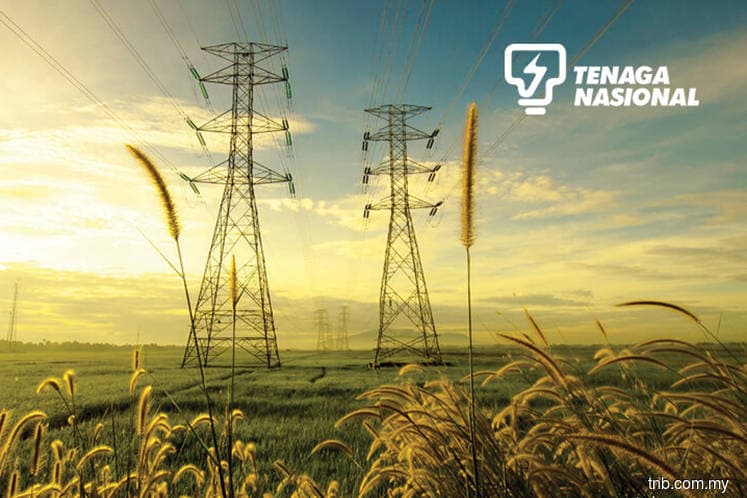
KUALA LUMPUR (Feb 28): Fitch Ratings has upgraded Tenaga Nasional Bhd's (TNB) long-term issuer default ratings (IDRs) for both local and foreign currencies to "A-" with a stable outlook, from "BBB+" previously.
In a statement, Fitch said it has also upgraded TNB's senior unsecured ratings — again for both currency categories — to "A-" from "BBB+" as well.
Key rating drivers, said Fitch, include strong government support, which holds an effective 60% ownership in TNB. "We view the status, ownership and control linkages between TNB and the state as 'moderate'," it said.
The ratings on TNB have been removed from its Rating Watch Positive, said the rating agency, having been under watch since November 2017 after the release of the exposure draft of the government-related entities (GRE) criteria.
As of now, Fitch said TNB's standalone credit profile of "BBB" represents its position as the owner and operator of Malaysia's electricity transmission and distribution network, and supplier of 52% electricity in Peninsular Malaysia.
The rating agency pointed to TNB's regular and appropriate implementation of the Imbalance Cost Pass-Through (ICPT) mechanism since June 2015, which it said has further strengthened TNBs financial profile beyond the normal range for power producers with standalone profiles of "BBB".
That rating is still constrained, said Fitch, despite TNB's financial profile appearing better than those of PT Perusahaan Listrik Negara (Persero) in Indonesia and Korea Electric Power Corp (Kepco) in South Korea.
Fitch views any standalone credit profile rating upgrade for TNB as dependent on how it implements ICPT under the Incentive Based Regulation (IBR) framework "especially in the coming 12 to 18 months" on expectations that coal and gas prices will rise to lift generation costs above benchmark costs in the short run.
That, combined with the upcoming 14th general election, said Fitch, will test the government's commitment to implement the ICPT mechanism.
"The Malaysian state has yet to demonstrate its consistent application of fuel cost pass-through when fuel prices increase above benchmarks stipulated in ICPT mechanism," said Fitch.
However, an increase in coal-fired electricity generation and the resultant reduction in reliance on expensive LNG will restrain growth in TNB's fuel costs.
Further, the rating agency expects TNB to allocate RM32 billion worth of capital expenditure (capex) between 2018 and 2020, mainly to increase local generation capacity and maintenance. It sees TNB as being able to fund the bulk of the capex internally, with annual cash flow estimated at RM15 billion a year.
"TNB plans to add 3.2 gigawatt (GW) by end-2019 to its domestic generation capacity of about 12GW at end-August 2016. The group also plans to pursue international opportunities; Fitch expects TNB to take at least 30% stake in these acquisitions.
"Fitch has not factored in any acquisitions in its financial forecasts for Tenaga, and will analyse the impact when there are any," it added.
Meanwhile, Fitch views TNB's support track record and expectations as 'strong', and viewed the absence of consistent support as due to the utility giant's existing financial strength.
Additionally, the rating agency said the socio-political and financial implications for Malaysia should TNB default are assessed as 'strong', similar with the sovereign rating itself, given the strong link between the two.
"TNB is entrenched across the value chain of the electricity sector in Malaysia, and we expect a financial default to lead to severe service disruptions and acute difficulties in making future investments," it added.